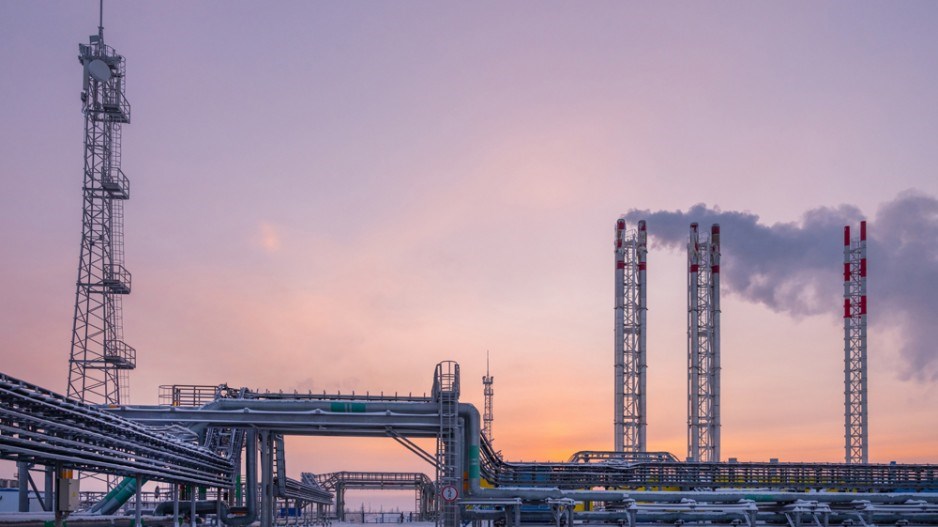Few people were expecting another major global economic challenge to emerge in 2022 after dealing with two years of unprecedented COVID-related upheavals. In many ways, that was why the Russia-Ukraine conflict this year has been so challenging.
That is the view of trade and geopolitical analysts assessing the impact of the Russian invasion of Ukraine that began in February – a new, unique set of global economic headwinds that has made 2022 so unusual in its predictability when 2020 and 2021 had already seen high levels of volatility.
Carlo Dade, director of the Trade & Investment Centre at the Canada West Foundation, said another contributing factor to the unpredictability was that many of the war’s leading economic impacts were not immediately recognizable after the war began.
“The war isn’t the system shock that COVID was, but it’s still pretty damn far reaching,” Dade said. “While people saw things like the impact on energy and agricultural goods, the tertiary effects – for things like fertilizer, because you need gas to produce fertilizer – took a while to happen. So you’ve had this system shock with COVID, followed up by another smaller but still significant system shock.… Things we should have know right away are becoming more manifest.”
Globally, International Monetary Fund (IMF) economic forecasts are down across the board in multiple regions this year. Public sentiments have been equally low; the high inflation, energy shortages in Europe and the lack of supply-chain clarity are all increasing the volume on recession predictions and whether one has already taken place.
One place that saw these upheavals directly was the Port of Vancouver.
Robin Silvester, president and CEO of the Vancouver Fraser Port Authority, said the war in Ukraine (and its tertiary effects) was a significant contributor to the port’s 11 per cent drop in overall cargo in the first half of this year.
“When you bundle everything that has happened together, you say to yourself, ‘Boy, that was a complex six months,’” Silvester said. “But I think what we would take away is that these are a number of one-off knocks, and our underlying fundamentals continue to look robust.… Demand in grains and thermal coal reflects the global challenges as a result of Russia’s invasion of Ukraine.”
Allen Sens is a professor of political science at the University of British Columbia who specializes in studies on international security and conflict management. He said Russia’s invasion of Ukraine in February caught many people – including political leaders in the West – by surprise. That sense of surprise played a big role in the economic hardship the world has seen since February, Sens said, as did the related fact that many leaders, especially in Europe, did not have a contingency plan for an alternative source of energy.
“I think that governments in Europe – especially in Germany – really ignored the warnings for a long time that tethering your energy dependence to Russia and [Russian president] Vladimir Putin’s government was just a really bad strategic idea. Over the last two decades, there was a really big increase in Europe’s energy dependence on Russia … and they are now stuck.”
Sens added that the warning signs were there for years for leaders to consider energy diversification.
“There was a refusal to acknowledge the real threat that the Putin government represented to Ukraine as far back as 2014, after the annexation of Crimea and seizure of Luhansk and Donetsk by Russia,” he said. “By the beginning of 2022, everyone seemed to have forgotten that – and wrongly believed Putin was bluffing when there was a military buildup on the Ukrainian border.”
The volatility brought on by the Russian invasion, experts added, is not likely to go away soon. Moscow in September started mobilizing its general population. Its move to conscript civilians into the army resulted in service-age men fleeing the country in droves. Meanwhile, Russian-backed forces held “referendums” in Luhansk and Donetsk to justify Russia’s occupation of internationally recognized Ukrainian territory – both of which are signs of Putin’s intentions of dragging out the war, Sens said.
“The war is going to start looking a little different as we edge into November and December,” he said. “There will be mud first, and then frozen snow after that. To what extent we can help the Ukrainians fight in those environments will be crucial. And then, we’re looking at a long war, and we will be looking at what happens after the spring thaw. Then, we will be looking at – and I can’t believe I’m using this terminology in 2022 – we will be looking at the next fighting season.”
One possible early resolution, Sens added, is increased political pressure within Russia. He noted that the mobilization has generated a lot of upheaval within Russian society – and political pressure on the Kremlin, already immense, will likely grow as the war in Ukraine drags on and fails to deliver on Putin’s goals.
“The big variable here is, will something happen decisively on the battle field or politically that causes [Moscow] to reconsider?” Sens said. “The mobilization itself is already a political risk and is an indication of Putin’s commitment to continue to fight.
“Moscow is boxed into a corner; one of the main reasons they can maintain credibility and legitimacy within Russia is by portraying themselves as being under attack by the West. In order to maintain that fiction, they have to continue the war. But if they continue, they are not going to win in terms of the larger sense of conquering Ukraine. So this has become a horrible downward spiral.”
Sens does note, however, that there is also growing pressure on the European side – which will likely increase substantially as winter arrives and natural gas supplies remain strained.




